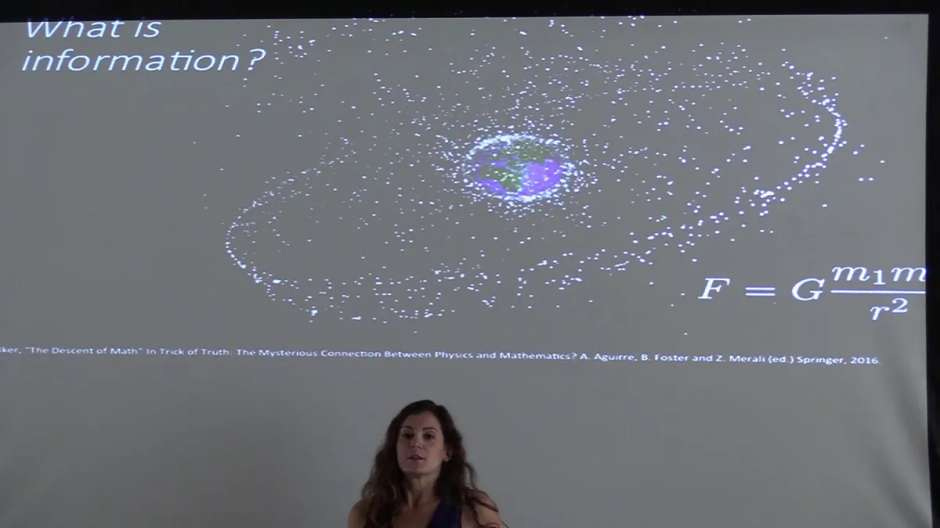Emergence Cannot Explain Intelligence
Planetary Or Otherwise
Let's have a look at the peer-reviewed paper "Intelligence as a planetary scale process" by Adam Frank, David Grinspsoon and Sara Walker, in the International Journal of Astrobiology.
We might loosely call planetary intelligence the scientific Gaia hypothesis. Here's how they open:
Conventionally, intelligence is seen as a property of individuals. However, it can also be a property of collectives. Examples include collective-decision-making by social insects, slime mould navigating mazes, and even intelligent behaviour of individual cells and viruses which are themselves a collective of chemical processes.
Convention is right, and the examples are wrong. Mould has no intelligence in any sense beyond following an algorithm, as it were (and only in an analogical sense), just as Conway's Game of Life is an algorithm that produces interesting patterns that it takes intelligence to grasp.
Insects, too, do not act as a group, but individually. Same with humans. Many men often act the same, or similarly, especially in crowds and panics, as we all have had extensive experience with. But each insect and each human acts in accord with their own single capabilities. The results of these individual actions, and whatever interesting patterns their collective behavior evinces, cannot be construed as "intelligence." Intelligence must be directed. "Emergent" patterns are not.
Every beast and flower remakes its environment in a way most conducive to it, even if these modifications of the world are nothing more than a plant or beast being here instead of being there. Actions are endless. Ants burrow, and so do men. The land is reshaped No one would would say the ants' or men's tunnels are intelligence, though. Except, perhaps, for our authors.
They agree that "most astrobiologists do not" share this eccentricity and do not "view intelligence as a property of the biosphere, from which a ‘Technosphere’ might emerge as an evolutionary stage of global intelligence."
They are interested in this Technosphere because of the search for extraterrestial intelligence (SETI), given the plausible conditional premise that if other intelligences exist they might leave traces that can be found by us.
I have read scores these papers over the years, and, like this one, they are cast in the form of a scientific pep rally, listing reason after reason why SETI might not be in vain. Well, and they might be right that ET is out there signaling to us, or leaving telltale traces. But after half a century of searching and nothing turning up, you'd think ardor would cool. Not yet.
Anyway, it is a trivial truth that if an organism changes an environment, the environment changes the organism right back. The two go together; they are inseparable. There are necessarily feedbacks, negative and positive, which are time and location dependent---which, incidentally, is why it is to difficult knowing what causes what. That these trivial truths are so is certainly not a discovery of any kind, as it has always been plain. Men cannot live in just their skins at the bottom of the ocean, fish can. Et cetera.
So what is "planetary intelligence"? "[A]n emergent, collective property of the subsystems comprising the biosphere, that in turn induces new modes of behaviour on individual parts (e.g. organisms)."
A gopher digs a hole in a prairie and the coyote has to take a different path. This path "emerges." The path itself is not intelligence. Neither, then, is the interstate highway system intelligence---though it was created by intelligences.
You can't get intelligence by making more roads, or how those roads interconnect with rivers. Just as you can't have intelligence "emerge" from an abacus by adding beads---or by sliding the beads faster.
There is no difficulty in using "emergence" as a metaphor, but it is no kind of explanation at all. It is mere hand waving. What causes intelligence? Emergence. What is emergence? That which causes intelligence. How does emergence work? It emerges. (See the abacus example.)
That makes sentences like this screwy: "While our current, early-Anthropocene phase displays key features of a planetary intelligence, e.g. an emergent CAS composed of multi-layered networks of semantic information flows, it appears to lack the critical characteristic of autopoietic self-maintenance."
Just when will our planet become self aware? When it emerges, or when emergence kicks in. And when will this happen? When our planet becomes self aware. Our authors go a little farther: "We make no absolute claims at this point as to the underlying cognitive nature of species that could create a planetary intelligence, but a minimal criterion might be that they should be social."
Why social? Hey, why not?
Again, no one disputes that intelligences causes interesting things to occur, things that can't be measured, mapped, noticed, maybe even seen from great distances, in the case of SETI. But in no cases are these interesting things "intelligence."
Buy my new book and learn to argue against the regime: Everything You Believe Is Wrong.
Visit me at wmbriggs.com.


